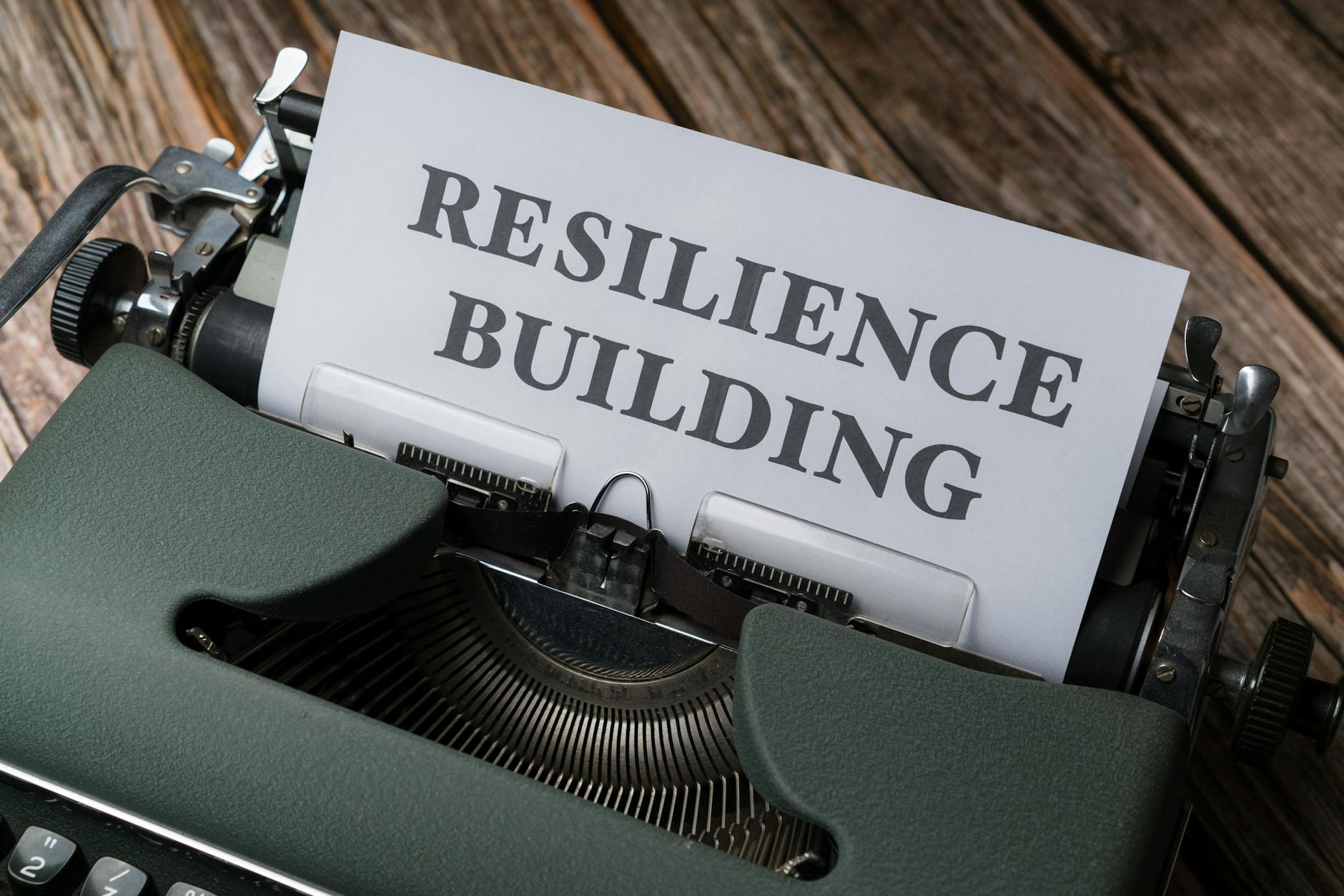
Have you ever wondered why some people seem to effortlessly navigate social situations and maintain harmonious relationships, while others struggle? The secret might lie in their emotional intelligence (EI).
In today's fast-paced world, where digital connections often overshadow face-to-face interactions, developing emotional intelligence has become more crucial than ever. Whether it's in your personal life or professional sphere, the ability to understand and manage your own emotions as well as those of others can be a game-changer. But here's the good news: emotional intelligence isn't a fixed trait. It's a skill that can be cultivated and improved over time.
In this blog post, we'll explore the fascinating world of emotional intelligence and its impact on our relationships. From understanding the core components of EI to practical strategies for enhancing your empathy and social skills, we'll guide you through the journey of developing this invaluable life skill. So, are you ready to unlock the power of emotional intelligence and transform your relationships? Let's dive in!

Understanding Emotional Intelligence
Define emotional intelligence
Emotional intelligence (EI) refers to the ability to recognize, understand, and manage our own emotions, as well as the emotions of others. It involves a set of skills that allow us to navigate social interactions effectively and build stronger relationships. Unlike traditional intelligence (IQ), which focuses on cognitive abilities, EI emphasizes the importance of emotional awareness and interpersonal skills.
Explain its importance in relationships
Emotional intelligence plays a crucial role in fostering healthy and fulfilling relationships. Here's why it's so important:
- Enhanced communication: EI enables us to express our feelings more clearly and understand others' emotions better.
- Conflict resolution: People with high EI can manage disagreements more effectively and find mutually beneficial solutions.
- Deeper connections: By understanding and responding to others' emotions, we can create stronger bonds and more meaningful relationships.
- Increased empathy: EI helps us put ourselves in others' shoes, leading to more compassionate and supportive interactions.
- Better stress management: With improved emotional regulation, we can handle relationship challenges more calmly and rationally.
Highlight key components of EI
Emotional intelligence comprises several interconnected components that work together to enhance our social and emotional capabilities. Let's explore these key components:
| Component | Description | Relationship Impact |
|---|---|---|
| Self-awareness | The ability to recognize and understand one's own emotions | Helps identify personal triggers and emotional patterns |
| Self-regulation | Managing and controlling one's emotions and impulses | Leads to more balanced and thoughtful responses in relationships |
| Motivation | Using emotions to drive oneself towards goals | Fosters perseverance and resilience in facing relationship challenges |
| Empathy | Understanding and sharing the feelings of others | Enables more supportive and nurturing relationships |
| Social skills | Effectively managing relationships and building networks | Improves overall communication and conflict resolution abilities |
These components work together to create a well-rounded emotional intelligence profile. By developing each of these areas, individuals can significantly improve their ability to navigate complex social situations and build stronger, more meaningful relationships.
As we delve deeper into emotional intelligence, it's important to recognize that these skills can be learned and improved over time. With practice and dedication, anyone can enhance their EI and reap the benefits in their personal and professional relationships. In the next section, we'll explore practical ways to develop self-awareness, the foundation of emotional intelligence.

Developing Self-Awareness
Self-awareness is the cornerstone of emotional intelligence and plays a crucial role in building better relationships. By understanding our own emotions, thoughts, and behaviors, we can better navigate social interactions and empathize with others. Let's explore four key strategies to enhance your self-awareness.
Practice Mindfulness
Mindfulness is a powerful tool for developing self-awareness. It involves being present in the moment and observing your thoughts and feelings without judgment. Here are some ways to incorporate mindfulness into your daily routine:
- Meditation: Start with just 5-10 minutes a day of focused breathing or guided meditation.
- Mindful eating: Pay attention to the taste, texture, and aroma of your food during meals.
- Body scan: Regularly check in with your body to notice physical sensations and tension.
By practicing mindfulness, you'll become more attuned to your inner experiences and better equipped to recognize your emotions as they arise.
Identify and Label Emotions
Learning to accurately identify and label your emotions is crucial for self-awareness. This skill allows you to better understand your reactions and communicate your feelings effectively. Consider the following techniques:
- Use an emotion wheel to expand your emotional vocabulary.
- Keep a mood journal to track your emotions throughout the day.
- Practice describing your feelings in specific terms (e.g., "I feel frustrated" instead of "I feel bad").
| Basic Emotion | More Specific Labels |
|---|---|
| Happy | Joyful, Excited, Content |
| Sad | Disappointed, Melancholy, Heartbroken |
| Angry | Irritated, Furious, Resentful |
| Afraid | Anxious, Terrified, Insecure |
Recognize Emotional Triggers
Understanding what triggers your emotional responses is a key aspect of self-awareness. By identifying your triggers, you can better prepare for and manage your reactions in various situations. Here's how to recognize your emotional triggers:
- Reflect on past experiences that have elicited strong emotional responses.
- Pay attention to patterns in your reactions to specific people, places, or events.
- Consider how your personal values and beliefs might influence your emotional responses.
Once you've identified your triggers, you can develop strategies to manage your reactions more effectively, leading to improved relationships and communication.
Seek Feedback from Others
While self-reflection is important, gaining insights from others can provide valuable perspectives on your behavior and emotional patterns. Here are some ways to seek feedback:
- Ask trusted friends or family members for honest input about your emotional responses.
- Participate in group activities or workshops that focus on emotional intelligence.
- Consider working with a therapist or coach who can provide professional feedback.
Remember that feedback is a gift, even when it's difficult to hear. Approach feedback with an open mind and use it as an opportunity for growth and self-improvement.
With these strategies in place, you'll be well on your way to developing stronger self-awareness. This enhanced understanding of your own emotions and behaviors will serve as a solid foundation for improving your relationships and overall emotional intelligence.

Enhancing Self-Regulation
Self-regulation is a crucial component of emotional intelligence that allows us to manage our emotions and behaviors effectively. By improving our self-regulation skills, we can navigate challenging situations with greater ease and maintain healthier relationships. Let's explore three key strategies to enhance self-regulation:
A. Learn stress management techniques
Stress can significantly impact our ability to regulate our emotions and behaviors. By implementing effective stress management techniques, we can maintain better control over our reactions. Here are some proven methods:
- Deep breathing exercises
- Progressive muscle relaxation
- Mindfulness meditation
- Regular physical exercise
- Journaling
| Technique | Benefits | Time Commitment |
|---|---|---|
| Deep breathing | Instant calming effect | 5-10 minutes |
| Mindfulness meditation | Improved focus and emotional balance | 10-20 minutes daily |
| Physical exercise | Reduced stress hormones, improved mood | 30 minutes, 3-5 times a week |
Incorporating these techniques into your daily routine can significantly improve your ability to manage stress and regulate your emotions.
B. Practice patience and impulse control
Patience and impulse control are essential for maintaining composure in challenging situations. To develop these skills:
- Use the "pause and reflect" method before responding
- Set realistic expectations for yourself and others
- Practice delayed gratification
- Engage in activities that require focus and concentration
By consistently practicing patience and impulse control, you'll find it easier to respond thoughtfully rather than react impulsively in various situations.
C. Develop healthy coping mechanisms
Healthy coping mechanisms are vital for managing difficult emotions and situations without resorting to harmful behaviors. Some effective coping strategies include:
- Engaging in creative activities (e.g., art, music, writing)
- Seeking support from trusted friends or family members
- Practicing self-compassion and positive self-talk
- Engaging in problem-solving and goal-setting
- Using humor to lighten tense situations
Developing a toolkit of healthy coping mechanisms allows you to navigate challenging emotions and situations more effectively, contributing to better overall self-regulation.
By focusing on these three areas – stress management, patience and impulse control, and healthy coping mechanisms – you can significantly enhance your self-regulation skills. This improvement in emotional intelligence will not only benefit your personal well-being but also positively impact your relationships with others.
As we continue to explore the components of emotional intelligence, we'll next examine the importance of cultivating empathy in building stronger connections with those around us.

Cultivating Empathy
Now that we've explored self-regulation, let's delve into the crucial skill of cultivating empathy, which is essential for developing emotional intelligence and fostering better relationships.
A. Active Listening Skills
Active listening is the cornerstone of empathy. It involves fully concentrating on, understanding, and responding to what someone is saying. To improve your active listening skills:
- Give your full attention to the speaker
- Avoid interrupting or formulating responses while they're talking
- Use verbal and non-verbal cues to show you're engaged
- Paraphrase and summarize to ensure understanding
Practicing active listening not only helps you understand others better but also makes them feel valued and heard.
B. Perspective-Taking Exercises
Perspective-taking is the ability to see situations from another person's point of view. This skill is crucial for developing empathy. Try these exercises:
- Role-playing: Act out scenarios from different perspectives
- Book club: Discuss characters' motivations and choices
- "Walk in their shoes": Imagine yourself in someone else's situation
| Exercise | Description | Benefit |
|---|---|---|
| Role-playing | Act out different scenarios | Gain insight into others' experiences |
| Book club | Discuss character motivations | Develop understanding of diverse perspectives |
| "Walk in their shoes" | Imagine yourself in another's situation | Increase empathy and compassion |
Regularly engaging in these exercises can significantly enhance your ability to understand and relate to others.
C. Recognize Nonverbal Cues
A large part of communication is nonverbal. Learning to read these cues can greatly improve your empathy:
- Facial expressions
- Body language
- Tone of voice
- Gestures
Pay attention to these cues in your daily interactions. Practice observing people in public spaces or watching muted videos to sharpen your skills in interpreting nonverbal communication.
D. Practice Compassion
Compassion goes beyond empathy by including the desire to help. To cultivate compassion:
- Volunteer for causes you care about
- Perform random acts of kindness
- Practice self-compassion
- Meditate on loving-kindness
Remember, compassion starts with yourself. By being kind to yourself, you'll find it easier to extend that kindness to others.
By focusing on these four aspects - active listening, perspective-taking, recognizing nonverbal cues, and practicing compassion - you'll significantly enhance your empathy skills. This, in turn, will contribute to your overall emotional intelligence and lead to more fulfilling relationships.
As we move forward, we'll explore how to improve your social skills, which will help you apply your newfound empathy in various social situations.

Improving Social Skills
Now that we've explored empathy, let's focus on how to improve our social skills, a crucial component of emotional intelligence that directly impacts our relationships.
Enhance Communication Abilities
Effective communication is the cornerstone of strong social skills. To enhance your communication abilities:
- Practice active listening
- Use non-verbal cues effectively
- Be clear and concise in your speech
- Ask open-ended questions
- Provide constructive feedback
Remember, communication is a two-way street. By improving how you express yourself and how you receive information from others, you'll significantly boost your social interactions.
Conflict Resolution Techniques
Conflicts are inevitable in any relationship, but how we handle them can make or break our connections. Here are some effective conflict resolution techniques:
- Remain calm and composed
- Identify the root cause of the conflict
- Use "I" statements to express your feelings
- Practice empathetic listening
- Brainstorm solutions together
| Technique | Description | Example |
|---|---|---|
| Active Listening | Fully concentrate, understand, respond, and remember what is being said | Paraphrasing what the other person said to ensure understanding |
| "I" Statements | Express feelings without blaming | "I feel frustrated when..." instead of "You always..." |
| Compromise | Find a middle ground that partially satisfies both parties | Agreeing to alternate decision-making on shared issues |
Build and Maintain Rapport
Building rapport is essential for creating strong, lasting relationships. To build and maintain rapport:
- Find common ground
- Show genuine interest in others
- Remember and use people's names
- Mirror body language subtly
- Be consistently reliable and trustworthy
Maintaining rapport requires ongoing effort. Regular check-ins, showing appreciation, and being supportive during both good and challenging times can help sustain strong connections.
Practice Assertiveness
Assertiveness is the ability to express your thoughts, feelings, and needs clearly and respectfully. To practice assertiveness:
- Know your rights and boundaries
- Use "I" statements to express your needs
- Learn to say "no" when necessary
- Express disagreement respectfully
- Stand up for yourself and others
Balancing assertiveness with empathy and respect is key to maintaining healthy relationships. It allows you to advocate for yourself while considering others' perspectives.
By focusing on these aspects of social skills, you'll be better equipped to navigate complex social situations, resolve conflicts, and build stronger, more meaningful relationships. Remember, like any skill, improving your social abilities takes time and practice. Be patient with yourself and celebrate small victories as you progress on your emotional intelligence journey.

Applying EI in Relationships
Now that we've explored the key components of emotional intelligence, let's examine how to apply these skills in various types of relationships. Emotional intelligence can significantly enhance our interactions across all aspects of our lives.
Romantic Partnerships
In romantic relationships, emotional intelligence plays a crucial role in fostering intimacy and maintaining long-term happiness. Partners with high EI are better equipped to:
- Communicate effectively about their feelings and needs
- Empathize with their partner's perspective
- Manage conflicts constructively
- Provide emotional support during challenging times
For example, when faced with a disagreement, emotionally intelligent partners can:
- Recognize their own emotions and those of their partner
- Express their feelings without blame or criticism
- Listen actively to understand their partner's point of view
- Work together to find mutually satisfactory solutions
Family Dynamics
Within families, emotional intelligence can help create a harmonious and supportive environment. Family members with strong EI skills can:
- Navigate complex family relationships with greater ease
- Resolve intergenerational conflicts more effectively
- Provide emotional support to family members in need
- Foster a sense of belonging and acceptance
Here's a comparison of low vs. high EI approaches in family situations:
| Situation | Low EI Approach | High EI Approach |
|---|---|---|
| Sibling rivalry | Ignore or punish | Acknowledge feelings and teach conflict resolution |
| Parental stress | React with anger | Practice self-regulation and communicate calmly |
| Family disagreements | Avoid or escalate | Facilitate open discussions and find compromises |
Friendships
Emotional intelligence can significantly enhance the quality and longevity of friendships. Friends with high EI tend to:
- Be more supportive and empathetic
- Navigate conflicts with greater ease
- Maintain boundaries while still being close
- Celebrate each other's successes without jealousy
Professional Relationships
In the workplace, emotional intelligence is increasingly recognized as a key factor in success. Professionals with high EI are better at:
- Collaborating with colleagues on team projects
- Managing and motivating others effectively
- Navigating office politics with grace
- Building strong networks and professional relationships
Consider these strategies for applying EI in professional settings:
- Practice active listening during meetings
- Offer constructive feedback with empathy
- Recognize and appreciate colleagues' contributions
- Manage stress and maintain composure under pressure
Community Interactions
Finally, emotional intelligence can have a positive impact on broader community interactions. Individuals with high EI are more likely to:
- Engage in volunteer work and community service
- Participate in local decision-making processes
- Build bridges between diverse groups within the community
- Respond compassionately to community challenges and crises
By applying emotional intelligence across these various relationship contexts, we can create stronger, more meaningful connections with others. This not only enhances our personal well-being but also contributes to a more harmonious and empathetic society as a whole.

Developing emotional intelligence is a journey that can transform your relationships and overall quality of life. By focusing on self-awareness, self-regulation, empathy, and social skills, you can enhance your ability to understand and manage emotions effectively. These skills are invaluable in building stronger, more meaningful connections with others.
Remember, emotional intelligence is not a fixed trait but a skill that can be cultivated over time. Start by practicing mindfulness, actively listening to others, and reflecting on your own emotional responses. As you continue to develop your emotional intelligence, you'll find yourself better equipped to navigate complex social situations, resolve conflicts, and foster deeper, more satisfying relationships in all areas of your life.
